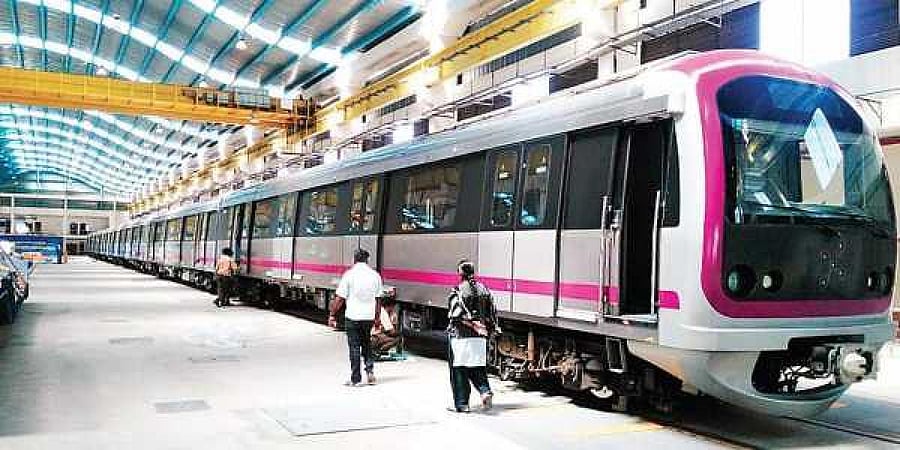
For BEML, the public sector defence undertaking, the beginning of the end appeared to take place in 2012, when the voices of a former Army chief and the Central Bureau of Investigation coalesced into a withering indictment against the company and its practices.
Now, seven years later, under the current management, BEML (formerly Bharat Earth Movers Limited), has tried to move past its troubled antecedents, forging for itself a reputation as Asia’s second-largest earth mover company and a maker of metro coaches, although the company’s journey back from the red has not been easy.
Formed in 1964, as a jewel in the Ministry of Defence’s crown, BEML was wholly operated by the government until 1992 when the centre divested itself of 25% of the company’s stock. At the time, the company’s rising stock appeared assured. It was known for its licence to manufacture Czech Tatra trucks, six and eight-wheeled behemoths about the size of a London double-decker bus, which aptly came to represent a company many saw as just as unwieldy.
It was then that the murmurs of dissent had begun, culminating in 2012, when the then Army Chief, V K Singh alleged that BEML had supplied the army with sub-standard variants of the Tatra T815 trucks for years and the company had also thwarted indigenisation attempts to keep purchase prices high. BEML’s former Chairman and Managing Director V R S Natarajan soon faced a battery of alleged charges of corruption, leading to his suspension in June that year. By July, the company’s share value plummeted by 269 points on the NSE between July 2012 and March 2013, and the company’s profit for the 2012-13 fiscal year a mere Rs 83.38 crore.
Since then, the company has attempted to diversify into the civilian market, with commercial products vastly outstripping the company’s 11 primary military products, ranging from aircraft pullers to Tatra trucks, to a 155mm mounted gun system to rocket launchers to pontoon bridging equipment.
For the year ended March 2019, the company’s metro and rail business comprised 31.12% of its total business, while mining and construction were even higher at 52.27%. In comparison, defence comprises a paltry 16.16%, partly because the company’s endeavours in this sector have not panned out.
Aircraft business fails to take off
Its attempt to branch out into aerospace with plans to set up a “Greenfield” manufacturing plant to churn out aircraft parts, for which it was allocated 25 acres of land in the Special Economic Zone near the Bengaluru International Airport in 2012 appears to be in a state of paralysis.
Where the company has made strides is in commercial activity, revolving around metro train sets for Namma Metro and corporations in four other cities: Delhi, Jaipur, Mumbai and Kolkata.
In the 2017-18 fiscal year, BEML’s new Chairman and Managing Director D K Hota announced that the company had achieved record sales of metro coaches with 244 units being sold to various corporations. “This was a growth of 114%,” he said, announcing that the company had net revenue of Rs 3,246 crore, which is nevertheless short of BEML’s aspirations to be a Rs 3,500 crore company.
The company’s profits have been consistently low. During the 2018-19 fiscal year, it amounted to Rs 63.49 crore (after-tax), which is nevertheless better than the Rs 6.76 crore that it made in 2014-15.
While Hota declined to comment on the company’s slow growth, in April 2018, he had announced the company’s order book as being over Rs 6,700 crore, along with three areas: mining and construction, rail and metro, and defence. Export sales remained dismal, with the company’s export sales amounting to Rs 28.53 crore during the 2017-18 fiscal year, which was down from the Rs 30.80 crore of exports the previous year.
The totality of these dismal figures has prompted the government to consider privatising the company. On July 8, the Centre, in the Rajya Sabha, reiterated its plan to disinvest 26% of its remaining 54.03% stake in the company to a “strategic buyer,” - a move which the government claims will increase efficiency.
The Minister of Defence, Rajnath Singh said at the time that “it has been decided to hive off the surplus land and other assets from the strategic disinvestment of BEML and dispose of them separately.”
The company, however, can point to its successes, especially its profit-making metro division as a sign that BEML is not quite out of the game. Its officers point to its slow growth in the last two years as the sign of a new beginning for the company, although considering the company’s troubled history, that remains to be seen.
